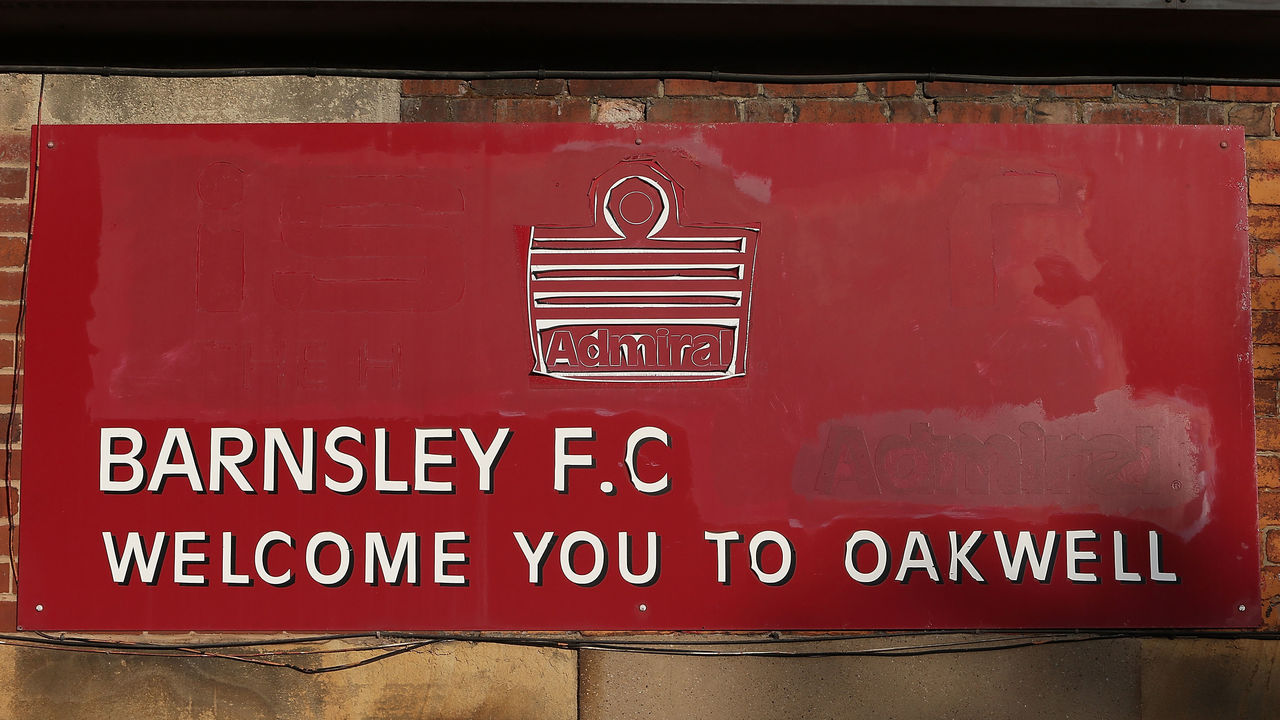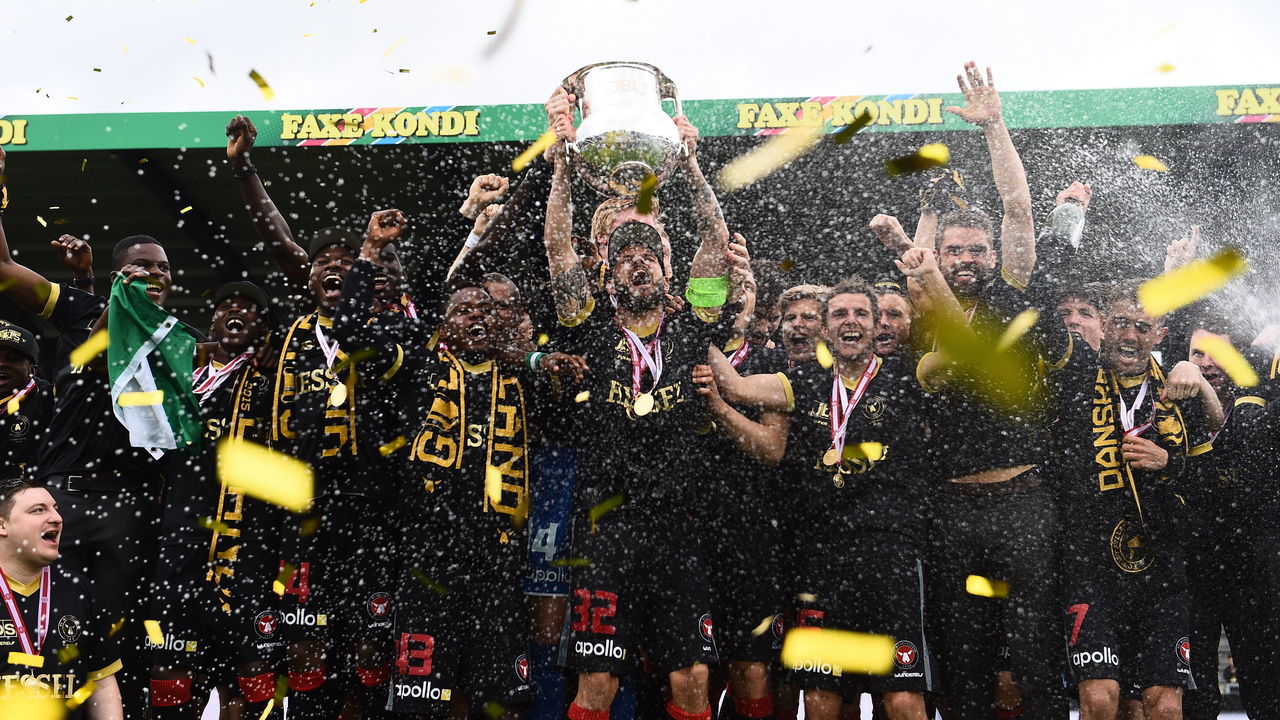Oakwell A's: Will Billy Beane's sums equal success in Barnsley?
If you didn't experience the explosive inception of "Moneyball" at the Oakland Athletics, there's a good chance you saw the story retold in a 2011 movie. The critically acclaimed flick sees Billy Beane, who is portrayed by Brad Pitt, and number nerd Peter Brand (Jonah Hill) stubbornly infuriate everybody at the MLB franchise by primarily leaning on statistics for recruitment and even team selection. The downtrodden A's subsequently went on to win a record 20 games in a row in that 2002 season, and challenge in the postseason.
Beane, a self-confessed enthusiast of football (of the spheroid variety), packed up his abacus and pledged some money into Chien Lee's takeover of Barnsley in December, where he will try to inspire a similar revolution in England. His involvement may be because he is seeing a saturation of statistics in baseball, where each team values the same metrics, allowing the richest teams to monopolise on the smarter deals. The cash-rich New York Yankees' electrifying 2017 campaign fronted by a legion of young talent could be a product of MLB rivals gradually mastering Beane's methods. Rather than haphazardly throwing money at short-term measures that would later leave them splurging huge wages on underperforming players, the wealthy are wiser and therefore harder to blindside.
"There was a time when we wanted young players, and big-market teams wanted proven players and could afford the cost. But now, we're all valuing the same things," Beane said this month.
Weakened by rivals
Barnsley isn't Hollywood. It's difficult to envision Pitt and other silver-screen sugars getting their mouths around the glottal stops and other nuances of Barnsley accents. It's a town that isn't renowned for birthing artistic brilliance - its contributions to music have been scarce, with just a few noted bands passing through a local college - and, like other places in the region, Barnsley has a lurking mistrust of outsiders, especially students and people from the country's south. Oakwell, the home of the town's football team, only attracts an average gate of around 14,000, but last season was seventh out of England's 92 professional clubs for the number of fans currently denied entry to grounds due to banning orders. The Tykes' count was almost double that of Arsenal's, despite the north Londoners letting 60,000 through their turnstiles each match.

Despite socio-economic factors and other elements working against the town and club, Barnsley has been sensibly run for some time. Players that emerged from the youth academy or honed their skills in Barnsley are forging successful top-flight careers - John Stones, Alfie Mawson, and Mason Holgate are all regulars in Premier League defences - and the majority of the first-team squad is aged 25 or lower. A transfer market and developmental approach that prioritises players that will increase in value was already in place before Beane took a financial interest.
But money possesses greater power in football than it does in baseball so, barring a takeover similar to the one at Bournemouth, those with modest resources and history often remain oppressed. Sam Winnall, James Bree, Conor Hourihane, Marley Watkins, Marc Roberts, and Josh Scowen have all been tempted to bigger names in the Championship, and the continual plucking of Barnsley's best has resulted in the 2017-18 term's battle against relegation into the third tier. Going into Saturday's trip to Birmingham City, the Tykes have only beaten hapless Sunderland in the league since early November.
The looting just doesn't happen to Barnsley's playing staff. Just four days after promising manager Paul Heckingbottom signed a new rolling contract with his hometown club earlier this month, he was tempted by the overtures of Yorkshire rival Leeds United.
Jumped in at the deep end
Heckingbottom's exit marked a difficult two weeks for Barnsley following the death of the team's former owner, Patrick Cryne. The Barnsley born-and-bred businessman was a lifelong supporter of the Tykes, and was heralded as a saviour of the club by fans. Popular board members are scarce in English football, but the end of Cryne's 14-month battle with cancer was met with an outpouring of emotion from Barnsley and clubs across the country.
The Cryne family would like to thank everybody for their heartfelt tributes to Patrick.
— BarnsleyFootballClub (@BarnsleyFC) January 23, 2018
We would like to share with you all an image from the last supporters meeting where everyone stood as one to thank Patrick Cryne for his dedication to Barnsley Football Club. #OneOfOurOwn pic.twitter.com/zl02mVnDXR
One of the final acts of Cryne's life was to sell the club to a consortium involving Chinese billionaire Lee, American businessman Paul Conway, and Beane. Aside from the lacking glamour in Barnsley, it wasn't immediately obvious what the appeal was. The minnow had been treated like a buffet by its richer contemporaries, and left alongside the mangled slices of quiche and sagging lettuce with the bitter taste of possible relegation. If Beane wasn't overly familiar with the concept of promotion and demotion between leagues, he certainly is now.
Nevertheless, something must have resonated with Beane for him to choose Barnsley rather than treading a smoother path elsewhere. He's helped out AZ Alkmaar - a side that bucked the trend prior to Beane's arrival in Dutch football by using data analysis en route to clinching the Eredivisie title in 2009 - and Major League Soccer's San Jose Earthquakes in advisory capacities before, posts away from the glare of Europe's elite countries in terms of club football, but has now jumped in at the deep end.
Perhaps he has devised the formula to make statistical waves in England, and go one better than Brentford owner Matthew Benham. The professional gambler has improved the fortunes of the Bees, and was part of a calculator-bashing backroom team at FC Midtjylland that helped finish at the Danish Superliga's summit at the end of the 2014-15 season. Despite an inaugural league title, Midtjylland was still behind on realising its long-term vision of being a congruous contender.

"Football is one of the hardest sports to draw statistical conclusions from because it is such a fluid game," chairman Rasmus Ankersen, another key player in the club's statistical leanings, told FourFourTwo's Andreas Kjall in 2015. "Baseball is much easier as it is a series of similar start-stop situations; in football, everything depends on something else. But just because it is hard to find clear causations in football doesn't mean it can't be done. There is huge potential in this area."
What Beane has in the Barnsley project is support from ambitious entrepreneurs already making their imprint in the game. Since Lee and Conway took over Ligue 1's Nice in June 2016, the club almost reached the group stages of the Champions League for the first time in its history with a collective of bargain buys and academy products. Financial Times understood they intend to build a network of clubs that can trade and develop players, and Barnsley is the newest cog in the mechanism.
"There's a great academy in place here, we believe we can enhance that. If you look at everything we've done with Nice, it speaks for itself. We intend to have that similar model here at Barnsley. We're not going to be crazy, we'll remain disciplined, but we will grow the club, year upon year," Conway said when the Barnsley takeover was ratified by the English Football League.
It might not just be Barnsley that Beane aims to revolutionise. He's tied himself to an ambitious syndicate that wants to forge a multi-club ownership model akin to the portfolios of the City Football Group (Manchester City, New York City FC, Melbourne City, and others) and Red Bull (most notably in Leipzig and New York). In the unlikely setting of Barnsley, Beane may have succeeded in discovering the outreach and backing that can let football's "Moneyball" metamorphosis truly occur.
(Photos courtesy: Getty Images)
HEADLINES
- Amorim says depleted Man Utd 'lack quality' after draw vs. lowly Wolves
- Arsenal destroy Aston Villa to send big message in title race
- Liverpool part ways with set-piece coach amid struggles
- Emery has score to settle when surging Aston Villa battle Arsenal
- Maresca can't explain why Chelsea keep squandering leads